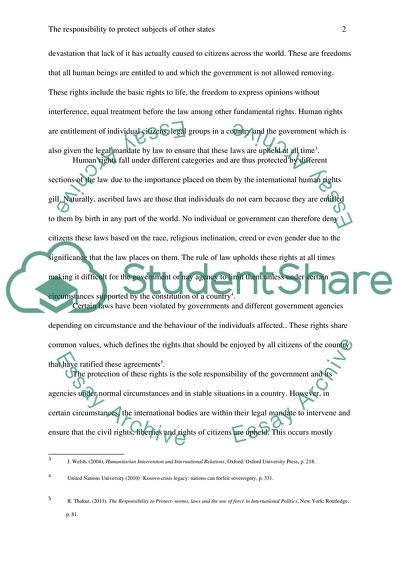Cite this document
(The Responsibility to Protect Subjects of Other States Report Example | Topics and Well Written Essays - 3250 words, n.d.)
The Responsibility to Protect Subjects of Other States Report Example | Topics and Well Written Essays - 3250 words. https://studentshare.org/sociology/1805937-what-kind-of-responsibility-do-we-have-for-the-rights-of-subjects-of-other-states
The Responsibility to Protect Subjects of Other States Report Example | Topics and Well Written Essays - 3250 words. https://studentshare.org/sociology/1805937-what-kind-of-responsibility-do-we-have-for-the-rights-of-subjects-of-other-states
(The Responsibility to Protect Subjects of Other States Report Example | Topics and Well Written Essays - 3250 Words)
The Responsibility to Protect Subjects of Other States Report Example | Topics and Well Written Essays - 3250 Words. https://studentshare.org/sociology/1805937-what-kind-of-responsibility-do-we-have-for-the-rights-of-subjects-of-other-states.
The Responsibility to Protect Subjects of Other States Report Example | Topics and Well Written Essays - 3250 Words. https://studentshare.org/sociology/1805937-what-kind-of-responsibility-do-we-have-for-the-rights-of-subjects-of-other-states.
“The Responsibility to Protect Subjects of Other States Report Example | Topics and Well Written Essays - 3250 Words”. https://studentshare.org/sociology/1805937-what-kind-of-responsibility-do-we-have-for-the-rights-of-subjects-of-other-states.


